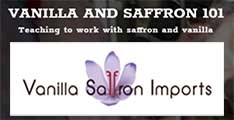Matthew Zuras. “This is such poor food!” laughs chef Alex Raij, stirring a pot of barely bubbling olive oil filled with thin slices of garlic. The chef and co-owner of Txikito has stopped by the MUNCHIES garden to make a few recipes from her new cookbook, an ode to the rich but simple cuisine of the Basque country. In the midst of prepping ingredients for garlic soup with torn salt cod—a soup made of leftovers, essentially—she remarks on how sublimely unsophisticated it is.
“All of these Basque recipes are so caveman,” Raij says half-jokingly. “The Basques are so isolated by their geography, and people were a little bit afraid of them. Even the Fascists were, enough to give them a little autonomy.”
Not Basque herself, Raij nonetheless fell in love with Basque cooking after meeting her future husband and business partner, chef Eder Montero, while working at a restaurant in Tribeca some years ago. Together, they eventually opened El Quinto Pino and Txikito in Chelsea, followed by La Vara in Clinton Hill, and most recently Tekoá, a casual cafe. In conjunction with Rebecca Flint Marx, last month she and Montero released The Basque Book: A Love Letter in Recipes from the Kitchen of Txikito.
While a small handful of New York City restaurants may offer pinxtos or takes on Basque fare, Txikito is still the city’s only authentically Basque restaurant, and Raij has been instrumental in giving this underrepresented cuisine some well-deserved time in the spotlight.
Raij’s visit to the MUNCHIES garden also happens to come only a week before she plans to cook at the Edible Schoolyard NYC Spring Benefit with more than a dozen of the city’s best chefs, which will help fund the program’s gardening and kitchen classes in New York City public schools.
As the mother of two young children herself, Raij is an avid supporter of Edible Schoolyard’s mission to teach kids where food comes from, how it grows, and how to improve its role in their lives. “I grew up with a yard in my family. My kids aren’t growing up that way at all,” she says. “I’m sure that’s why my son eats nothing!”
As she slices ramp leaves into thin ribbons, Raij recalls one of her own early gardening experiences: “I remember sorting out seeds in my class in second grade, and there was nothing left to pick from when it got to me, so I got zucchini. Everyone else got, like, beans. And all kids like to eat beans! But zucchini? I wasn’t excited about it at all. And then, all of a sudden, I got this huge yellow flower on my plant, and it was like the hero plant of the class. I got last choice but best plant. And it made me want to eat zucchini.”
Raised in Minnesota by Argentine Jewish parents who emigrated to the US shortly before she was born, Raij and her family were always immersed in food. In The Basque Book, she writes, “Growing up, my favorite pastimes were playing restaurant, dreaming about food, and reading cookbooks, so opening a restaurant someday would not have seemed impossible.”
In the garden, she adds, “I think that food is, at least for me, sort of a big gateway to understanding so many different things, from geography to measuring, math—things that I wasn’t remotely interested in.”
Indeed, her walk through the garden inspires her to riff on her Basque dishes, picking chive flowers and white radishes to add to a menu of garlic soup with salted cod, a whole trout pan-seared in olive oil, and tender lettuce dressed with tuna and anchovies.
And flexibility like that, Raij says, is what has allowed the Basques to retain their identity both culturally and culinarily. Even at Txikito, “authentic” comes with a small caveat.
At its heart, Basque cuisine is relatively simple. (“If you have a bottle of olive oil, a head of garlic, and a tin of tuna, you can make Basque food,” Raij writes in her cookbook.) Its secret lies in quality ingredients and solid technique, rather than needless embellishments. And its simplicity also allows Raij to infuse traditional dishes with little nods to her Argentine heritage—and its Italian influence—as well as the traditions of the Midwestern US.
At the same time, the dishes at Txikito take on a sort of New York terroir. “For so long we had to make adjustments and find substitutes,” she says, “and now I feel like our flavor is sort of based on those substitutes and I don’t want to change them.”
For her choricero pepper paste—a slightly bittersweet Basque staple—she replaces the choriceros with guajillo peppers, which are more readily available in the US and add a bit more heat to the otherwise mild Basque palate. (She notes that peppers are a product of the Columbian Exchange, and aren’t native to the Basque country anyway.)
Raij also says that if you suddenly find yourself out of fish stock for her garlic soup, you can replace it with instant dashi—not exactly a traditional Basque ingredient. “When you use Hon Dashi and add some sherry, it’s heavenly.”
“Heavenly” certainly describes her soup, which contains only a handful of ingredients but builds layers and layers of flavor. There’s quick-cured cod, which replaces dried bacalao with fish that’s been salted for only a few hours and pressed to drive out some of its moisture. (“We’re not preserving, we’re just flavoring,” Raij says of the technique.) And the garlic oil is made by nearly poaching garlic slices before crisping them to golden perfection. She then uses the oil to fry the pepper paste and pieces of stale bread, which creates a sort of rustic roux. From there, she mashes the fried bread with stock, before stirring in some ramp leaves and the cod, and finally topping the whole thing with an egg yolk. The result is a salty, slightly spicy, improbably complex dish, considering its few ingredients.
After that, she turns to her “campfire” trout—a nod to her Midwestern origins. “Mostly it’s an aesthetic,” she says of the Minnesotan influence on her food. “[In the Midwest] there’s a lot of hotdishes and stuff, so I picture a lot of casseroles and meats tied up like a ham.”
This trout isn’t tied or cooked over a campfire, though; instead, it’s quickly pan-fried on one side in smoking olive oil until just cooked through. As it warms in the pan, Raij makes more garlic oil, adding a confetti of sliced jamón, parsley, and guindilla pepper to the pot near the end—not to crisp the ham, but just to lightly cook it. She serves the splayed fish whole, dressed with the flavorful oil and a dash of rosé vinegar made from Navarran grapes.
Lastly, Raij composes a salad of Boston lettuce and olive oil-packed tuna and anchovies—a salad so easy and yet so flavor-packed that it makes ordering from Seamless seem like a chore. Most important, she points out, is the cogollo—the tender lettuce heart that is also a Spanish metaphor for the heart of a matter, or the heart of a city. The slightly bitter greens are complemented by the saltiness of the tinned seafood (buy premium here, not Bumble Bee), along with some sliced scallions and a hit of sherry vinegar.
Serving the spread to the MUNCHIES team, Raij adds a few lavender-colored chive blossoms for a pop of flavor and color. Although she’s not the type of chef to doll up her food with flowers, “it’s kind of irresistible when you’re out here,” she says.
Want a little taste of Alex Raij’s cooking and MUNCHIES produce, too? The chef was so inspired by her visit (really!) that she’ll be serving snacks at the Edible Schoolyard NYC Spring Benefit made with radishes, kale flowers, and herbs from the MUNCHIES garden. And if you can’t snag a table there, you should very definitely hit up the afterparty. (Oh, and the first 20 readers will get $20 off the ticket price by entering the discount code MUNCHIES.) Good food, and for a good cause.



 Enviar a un amigo
Enviar a un amigo Añadir comentario
Añadir comentario








